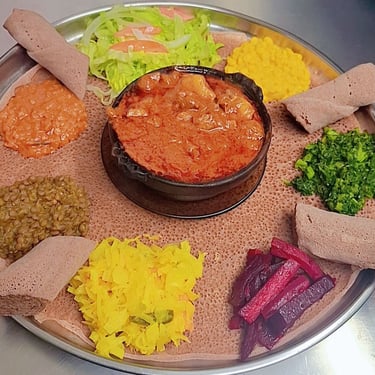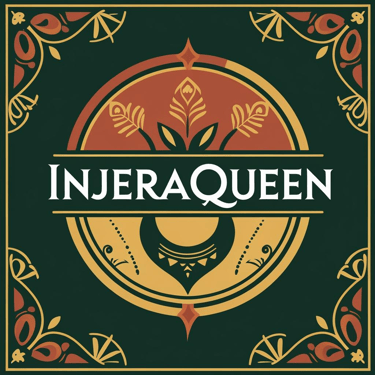follow us for promotional on google profile
About Zara Restaurant
Experience authentic Ethiopian and Eritrean cuisine in Bristol with our dedicated team at Zara Restaurant.
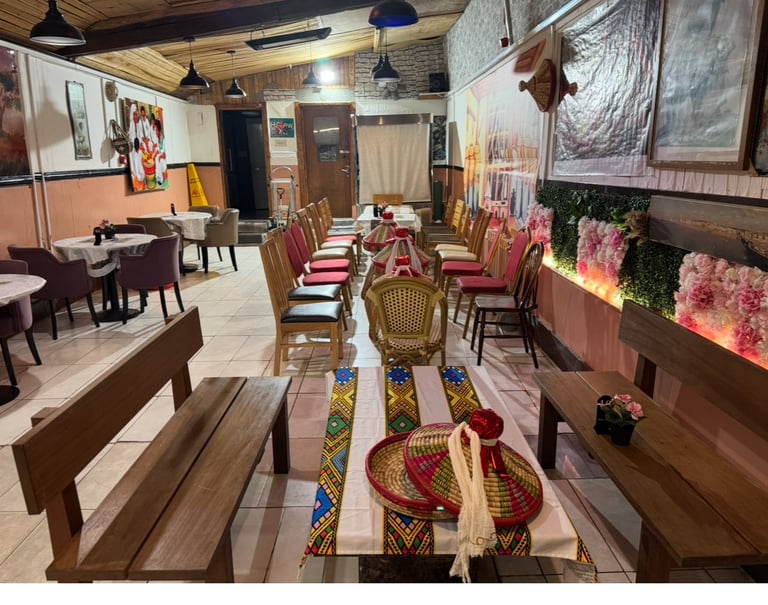

A laidback yet elegant haven from the incessant traffic of Lawford gate Bristol, ZARA offers traditional Ethiopian and Eritrean food. Instruments, artefacts, and images of heroes and heroines from the horn of Africa combine to create an unique environment in which to explore a modest range of aromatic meaty dishes such as kulwa, which is lamb fried in ghee, onion and green chilli. Everything comes with Injera (freshly baked leavened bread) or rice. From a generous list of vegetarian options, how about the misnamed foul - a tasty mix of broad beans, onions and olives, served with cottage cheese, tomatoes and butter?
OUR CUISINE
Coffee Ceremony
Following a meal, fresh coffee beans are roasted and offered to guests to have a waft of the aroma. The roast is then ground and put into a traditional clay vessel, called a Jebena, and boiled. Coffee is traditionally accompanied with burning frankincense and served with popcorns.
Coffee is traditionally accompanied with burning frankincense and served with popcorns.".
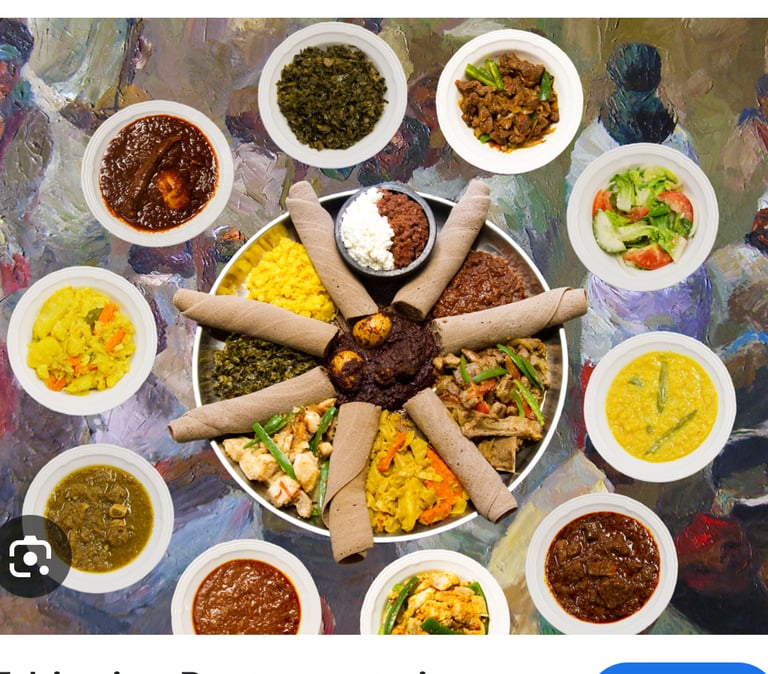

injera with Tsebhi (Stew) is one of the main traditional foods in cuisine. Injera, also called Taita, is leavened pancake made with sourdough of Taff flour. Injera is prepared by mixing water and left to ferment for a few days. When the mixture matures, it is baked on a round clay stove into large flat pancakes.
Tsebhi (wot) is mainly prepared with beef, chicken, mutton or vegetables. As well as Tsebhi,Ethiopian and Eritrean cuisine comprises of a variety of vegetarian dishes such us Shiro – a spicy chickpea mush, Timtimo – spiced lentils dahl with tomatoes, and Hamli, a spinach recipe with a touch of Ethiopian and Eritrean spices and herbs.
An Ethiopian and Eritrean Meal
During a meal, people gather around a Meadi (Meal) traditionally called a Mosob – a woven basket vessel. A meal cannot start until all members of a family take up position to break injera together.
Eating a meal is a collective family engagement with people sharing food from a large circular tray filled with layers of injera and topped with various spicy stews and vegetarian dishes. Eating involves tearing off pieces of injera and wrapping it around portions of tsebhi to form a helping – each helping is handled with the hand without the use of any utensils.
"A meal cannot start until all members of a family take up position to break injera together.
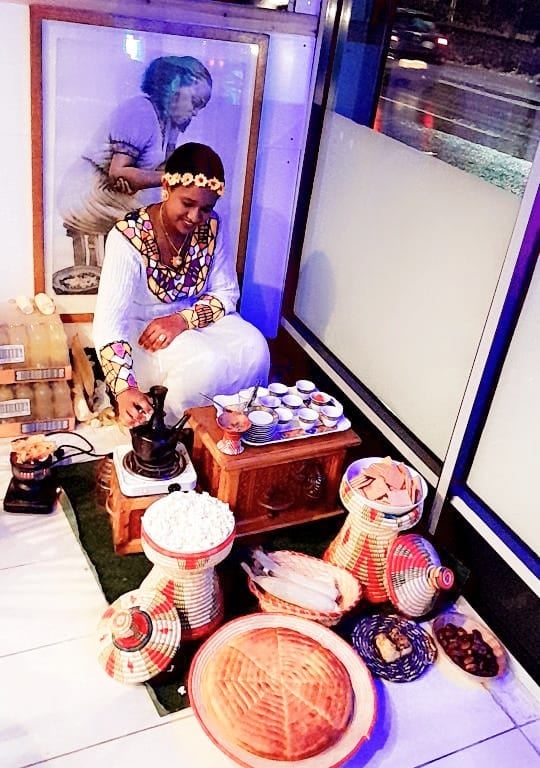

The best Ethiopian food I've ever tasted! Exceptional service and a warm atmosphere. Highly recommend!
Emma Smith
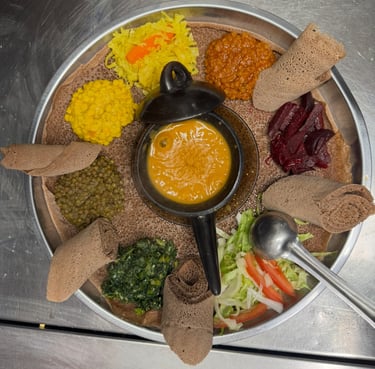
Incredible flavours and authentic dishes! Zara Restaurant truly delivers a unique dining experience in Bristol.
John Doe
